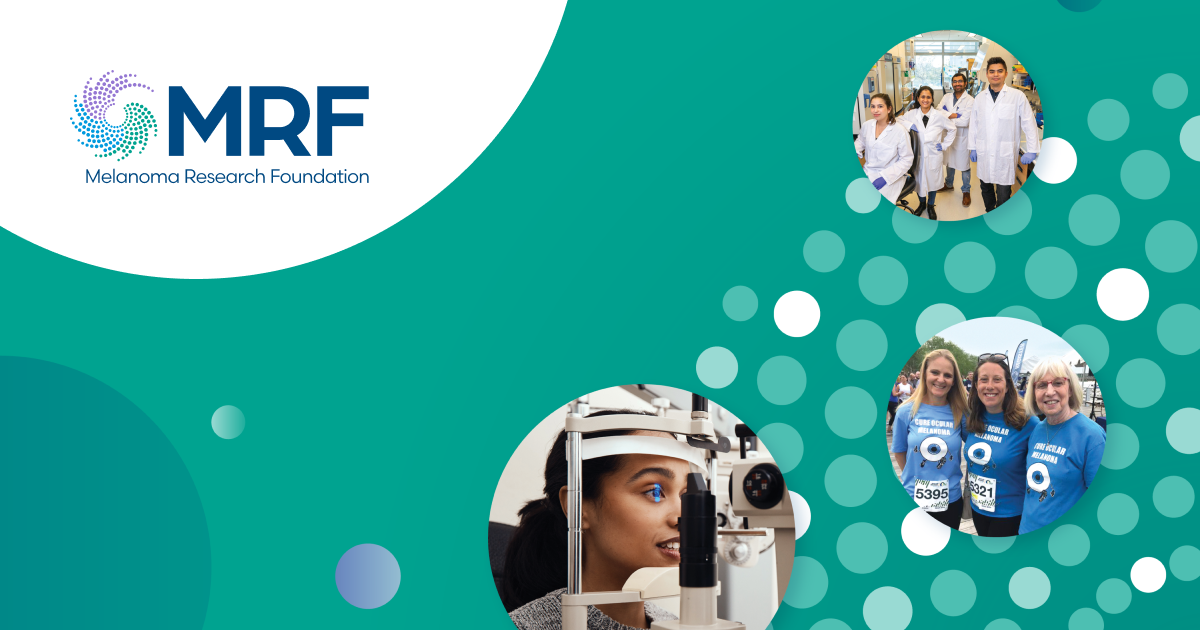Katie Doble: My experience with Brain Mets & hope

Guest blog by Katie Doble, ocular melanoma (OM) survivor, MRF Courage Award recipient and OM advocate who shares her journey with Brain mets:

Not to brag, but I was a 1A. In the ocular melanoma world, that meant that there was a less than 2% chance of metastatic disease—or that it would spread to another part of my body. If it does spread, it typically goes to the liver or lungs, at least, that is what I was told in the beginning.
As follow up care after my primary treatment (when the tumor was contained in my eyeball), my doctor put me in touch with an oncologist who recommended bi-annual liver ultrasounds and chest x-rays, despite my 1A status. The first set of tests went smoothly and resulted in an “all clear” voicemail from the ultrasound tech the following week.
Seven months later, two days before Thanksgiving in 2014, I received the dreaded phone call from the oncologist herself hours after my exams. They discovered over a dozen suspicious lesions on my liver, and it was likely that I had fallen into that 2% margin. Soon after, a liver biopsy confirmed that I had stage 4, incurable ocular melanoma metastases.
I believe there are two types of people in this situation: the one who immediately goes to google to gather all the information and the one who does not want to know. I am the latter. It’s important to note, neither one is right or wrong. I have never wanted to hear statistics or research worst-case scenarios.
This has made connecting with my ocular melanoma community difficult because in hearing others’ stories, you inadvertently hear statistics and worst-case scenarios. By 2016, I had been eliminated from three clinical trials and received Y90, which I was responding well to, giving me a much-needed break in treatment. But with that, I was left with the emotional aftermath of cancer and feelings of isolation.
I made the choice to begin connecting with other ocular melanoma patients. It was simultaneously comforting and disheartening. One patient criticized me during a support group for not doing any research (she had done her own research, sometimes 14-15 hours a day). Another patient, who shares my diagnosis date, turned into a lifelong friend. We call each other to celebrate the wins and cry through the challenges. I cannot imagine being on this journey without her (and many others I have met along the way.)
In 2017, I attended the Wings of Hope Gala in Denver and met a fellow survivor who told me about the time it spread to her brain.
Wait, what?
I didn’t know it could do that. And I wished I could unhear it.
I had been stable in my liver for two years when I developed stroke-like symptoms in 2018. My GP and retina specialist both agreed it was not likely a brain tumor because ocular melanoma doesn’t spread to the brain. But I knew that it did, in rare cases. And I had already proven to be a rare case with my 1A status turned mets.
My oncologist ordered a brain MRI where a spot was discovered. A week later, I was getting four screws drilled into my skull and donning an aggressive head piece that made me look like a transformer. Thankfully, the Gamma Knife treatment was successful.
In mid-2020, amid the pandemic, scans showed my liver tumors doubled in size. I entered my fourth clinical trial at UPMC—Pittsburgh called TIL therapy. The tumors responded well, apart from one festering problem, one that continued to grow while the others disappeared. So naturally, I named that tumor Uncle Fester. In the fall of 2021, my doctor at UPMC told me he wanted to surgically remove Uncle Fester and any remaining cancer.
I awoke from the operation which required an 11” incision on my abdomen and the removal of half of my liver and heard the words we once thought impossible, “Katie, you are no evidence of disease (NED).”
Ocular melanoma is a rare disease. Within that, doctors and researchers are trying to find the patterns. Amongst us, we are watching each other, cheering each other on, seeing what works and what doesn’t. The connections are raw. It’s difficult to hear of regressions or treatments not working because we’ve fallen in love with each other and because we’re thinking of ourselves. When we lose members of our community, we mourn for their loved ones left behind and we fear causing that same pain for our families.
I had never experienced survivor’s guilt until I truly identified as a survivor. Before that, I called myself a thriver. Since becoming NED, the wave of emotions has been unbearable at times, especially when I hear of the passing of another friend who has been on this journey with me. One thing that has helped is being able to pass along the knowledge I’ve gained: get a second opinion, do or don’t do research (whichever you need to help yourself), don’t put too much stock in statistics, always have a plan b, keep making plans in life, and never lose hope.
Life-saving advances in melanoma research are made possible by the generosity of supporters like YOU. Please consider a tax-deductible donation today:
[button link=”https://donate.melaresearcstg.wpengine.com/site/Donation2;jsessionid=00000000.app20032b?idb=662313274&df_id=3022&mfc_pref=T&3022.donation=form1&NONCE_TOKEN=BE7DCF75AF9F16016CAAC7CD4F48B84E” color=”green” newwindow=”yes”] Donate[/button]



